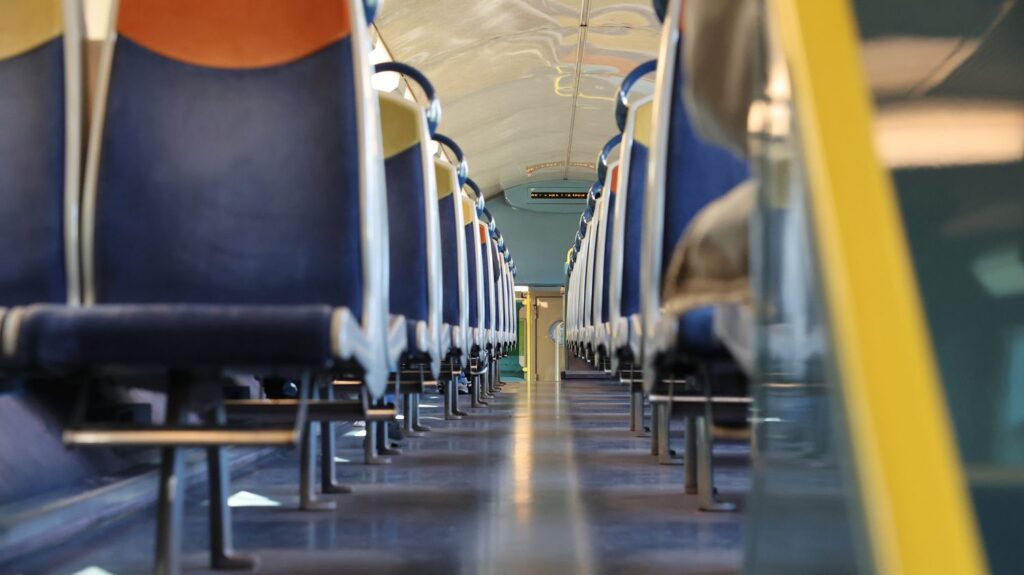The Ile-de-France region, RATP, SNCF and Ile-de-France Mobilités have launched a communications campaign to remind people of the existence of this number for victims or witnesses of harassment in transport.
/2023/07/07/64a7df4c5fe71_placeholder-36b69ec8.png)
Published
Updated
Reading time: 4min
/2025/11/03/maxnewsspecialtwo384149-6908d1fd399d4274920141.jpg)
The school director who protected a woman who was the victim of an attempted rape in the RER C on October 15 receives the Île-de-France medal on Wednesday, November 19 for his act of bravery. At the same time, a communication campaign began on Monday in the Paris region to remind people that victims or witnesses of attacks in transport can call 3117a number that is still too little known by the main stakeholders.
At Chatelet – Les Halles, the largest underground station in the world, thousands of passengers pass through and among them, women victims of gender-based and sexual violence. “It happened to me several times that people followed me, that people masturbated in front of me… It happened to me when I was 16, no one said anything to him”testifies, for example, Camille, 19 years old.
Karine is 48 years old, and has already been confronted with “rubbers” in the metro. “I screamed and asked him to stop rubbing himself like that. I was shaking and stressed. After that, I was waiting for my colleagues so I could go home…”confides this transport user. These attacks have a profound impact on these women who adapt their behavior accordingly. “Often I prefer to go out with boys, and now I even prefer the car”Camille testifies.
/2025/11/18/campagne-harcelement-transports-2025-arreter-agresseur-courage-surtout-telephone-691ce9a8a6095374342378.jpg)
As for those who have never been confronted with it, they remain on their guard, as Eva and Tania, two students, explain. “I find it more reassuring to be with women. So I will inevitably enter a car with women”explains Eva. “I saw a petition passed to make carriages reserved for women, I didn’t sign it but perhaps we need to protect women while men educate themselves. But I don’t think that’s going to solve the problem either.”Eva thought.
One of the ways to protect yourself is to dial 3117, the SNCF number linked to transport safety. A number displayed almost everywhere, also called out on station loudspeakers, but which none of the women interviewed know. “I didn’t know at all”they all answer. It is for this reason that a communication campaign is launched, to “democratize and publicize this service, which remains insufficiently used”indicates Ile-de-France Mobilités.
To find out more about this number, head to the national rail security center, located at Gare du Nord in Paris. Here, SNCF rail security agents manage calls to 3117 but also SMS to 31 177, 24 hours a day, 7 days a week. Around 100 000 alerts are given on average each year throughout France, including 20,000 in the Paris region. In total, 5% concern sexist and sexual violence, which is quite low. Many calls made to 3117 have, in fact, no connection with the initial objective.
Jérôme handles hundreds of calls every day, many of them unimportant, such as calls regarding requests for information on train schedules. But other calls are sometimes decisive. “Last September, a woman called because she was in RER B in front of an individual who began to masturbate in front of her, relates Jérôme. Extremely shocked, she immediately called 3117.”
“We managed to locate the victim, which allowed us to contact the command post with a team that received the train upon its arrival at Gare du Nord. The perpetrator was able to be arrested.”
The man was finally taken into custody and the victim filed a complaint. Proof that this number can really help women victims of sexual and gender-based violence in transport. This violence has also increased by 86% in almost ten years, according to a study by the National Observatory of Violence Against Women.


